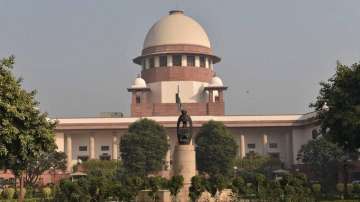Terming triple talaq as a serious issue of human rights, the Supreme Court today said that it will not hear the issue of the Uniform Civil Code along with it as it was a different matter altogether. The apex court further stated that it will begin hearing on the matter from May 11.
"It's a matter of human rights, so we would deal with it properly," the SC observed. The court was hearing a bunch of petitions on the Constitutional legitimacy of triple talaq and polygamy in the Muslim community. The matter also involves a suo motu case initiated by the Supreme Court in this regard.
The SC bench, presided by Chief Justice JS Khehar and Justices NV Ramana and DY Chandrachud, also asked the parties to frame the issues and decide on the lawyers who will be arguing the matter.
“Sit together and decide and let us know”, the court said and posted the matter for day after tomorrow.
“We will post it for hearing in the first week of summer vacation,” remarked Justice Khehar.
Several women have moved the Supreme Court seeking the quashing of the triple talaq practice. The Centre has also told the top court that it is against gender injustice and for equality between men and women under the Constitution.
The issue assumed prominence when one of the petitioners, Shayara Bano, moved the SC challenging the practice of triple talaq under the Muslim personal law. Under this practice, a man has to simply utter ’talaq’ thrice to divorce his wife.
The petitioner has also challenged the concept of ‘nikah-halal’, under which a woman must consummate another marriage in order to go back to her first husband if she wants to. She also wants to outlaw polygamy within a Muslim marriage.
In December last year, the Allahabad High Court termed the Islamic practice of divorcing a woman by uttering the word “talaq” thrice as unconstitutional.
The court further observed that the triple talaq practice sanctioned under Muslim Personal Law that governs marriage, property and divorce violates the rights of Muslim women.
“Triple talaq is unconstitutional, it violates the rights of Muslim women,” ruled the High Court, adding that no personal law board is above the Constitution.
However, the All India Muslim Personal Law Board has defended the practice, saying it is better to divorce a woman than kill her. The rights bestowed by religion can’t be questioned in a court of law, it said.
Latest India News
